
By IAU and Sky & Telescope magazine (Roger Sinnott & Rick Fienberg) [CC-BY-3.0], via Wikimedia Commons
"The Hunter"

By IAU and Sky & Telescope magazine (Roger Sinnott & Rick Fienberg) [CC-BY-3.0], via Wikimedia Commons
Abbreviation: Ori
Genitive: Orionis
Constellation family: Orion
Nearest constellations: Eridanus, Gemini, Lepus,
Monoceros, and Taurus
Right ascension: 5.59h
Declination: 4.58°
Visible between latitudes: +85° and -75°
Square degrees: 594
Luminary: Rigel (Beta Orionis)
Named stars: Rigel, Betelgeuse, Bellatrix, Mintaka, Alnilam, Alnitak, Nair al Saif, Saiph, and Meissa
Notable deep sky objects: M42 (the Orion Nebula), M43, M78, NGC 2022, NGC 2024 (the Flame Nebula), IC 434 (the Horsehead Nebula)
Orion is one of the most distinctive constellations in the sky. It is located along the equator and is best seen during January. It contains Rigel, or Beta Orionis, the seventh-brightest star in the night sky, as well as Alpha Orionis, or Betelgeuse, which is the tenth-brightest star.
Betelgeuse, Sirius (from Canis Major), and Procyon (from Canis Minor) form an asterism called the Winter Triangle. In addition, Rigel, Sirius, Procyon, Aldebaran (from Taurus), Capella (from Auriga), and Pollux (from Gemini) form another asterism called the Winter Hexagon or the Winter Circle.
Orion is home to the Orionid meteor shower, an annual meteor shower that occurs from October to November. At its peak, a date that usually falls around October 20, there can be up to around 20 meteors per hour.
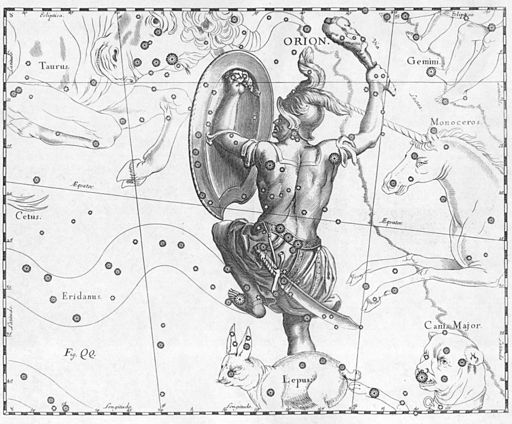
By Johannes Hevelius, scanned by Torsten Bronger, 4 April 2003 [Public domain], via Wikimedia Commons
Mythology regarding Orion varies considerably. However, Orion is universally described as a powerful hunter, and Canis Major and Canis Minor are often referred to as his hunting dogs.
There are two main stories regarding the cause of his death. The first story involves the goddess of the hunt (Diana in Roman mythology and Artemis in Greek mythology), with whom he fell in love. While Orion was swimming in the ocean, the goddess's brother Apollo, who disliked Orion, challenged his sister to shoot Orion who appeared as a difficult and unidentifiable target to the huntress. She succeeded and Orion died from her arrow, so she placed him in the sky to honor him.
The second story attributes Orion's death to Scorpius, the scorpion. Orion boasted that he could kill any living creature, so a scorpion was sent to challenge him in battle. The scorpion triumphed, and their conflict is sometimes used to explain the fact that Scorpius and Orion are never visible in the sky at the same time.
IC 434 (the Horsehead Nebula):
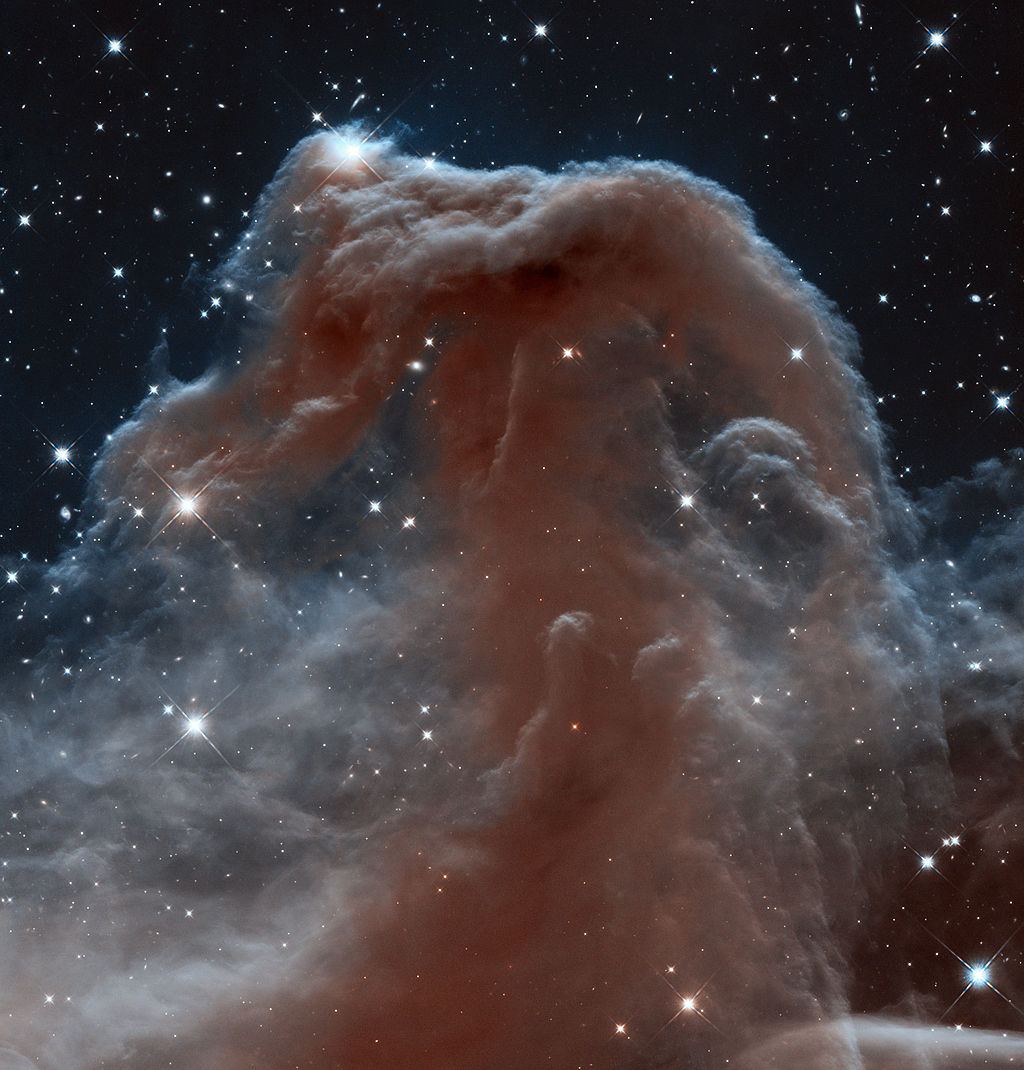
By ESA/Hubble [CC-BY-3.0], via Wikimedia Commons
NGC 2174 (part of the Monkey Head Nebula):
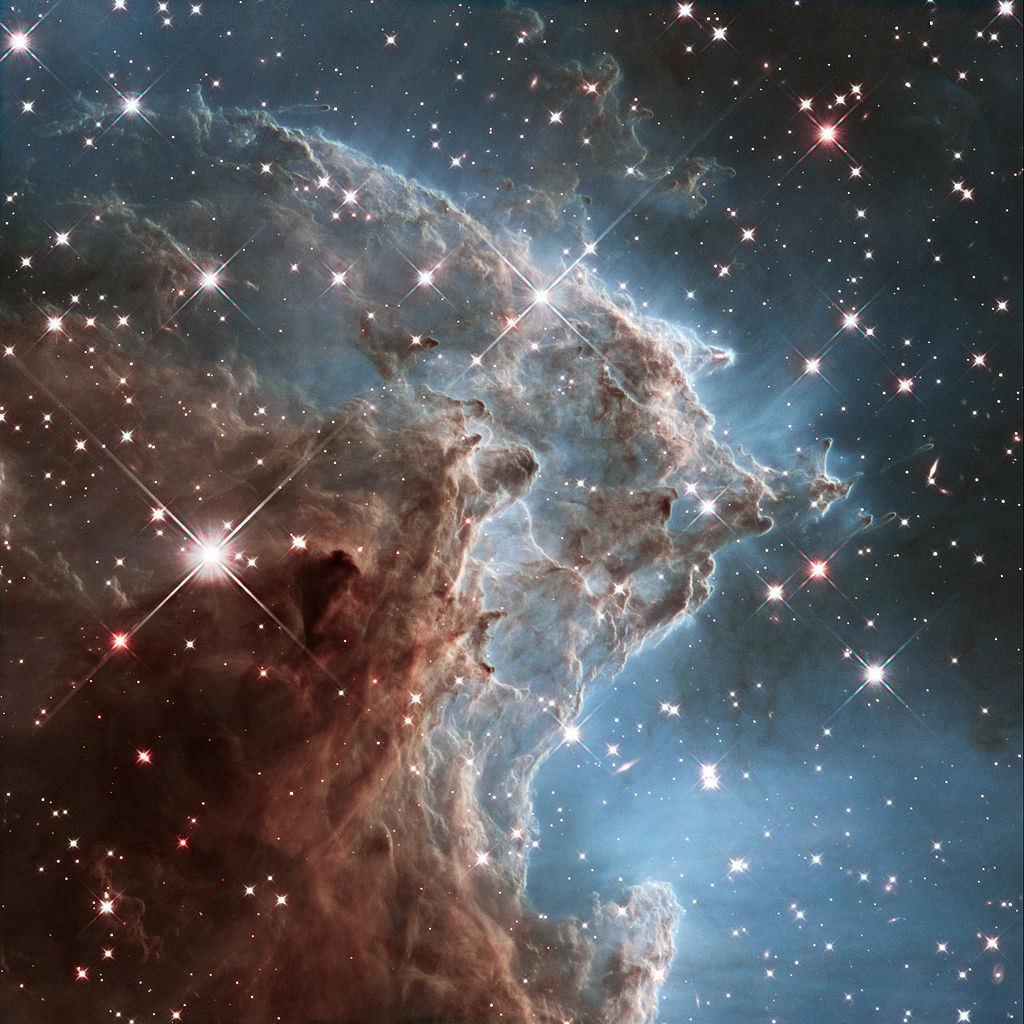
By NASA, ESA, and the Hubble Heritage Team (STScI/AURA) [CC-BY-3.0], via Wikimedia Commons
M42 (the Orion Nebula):
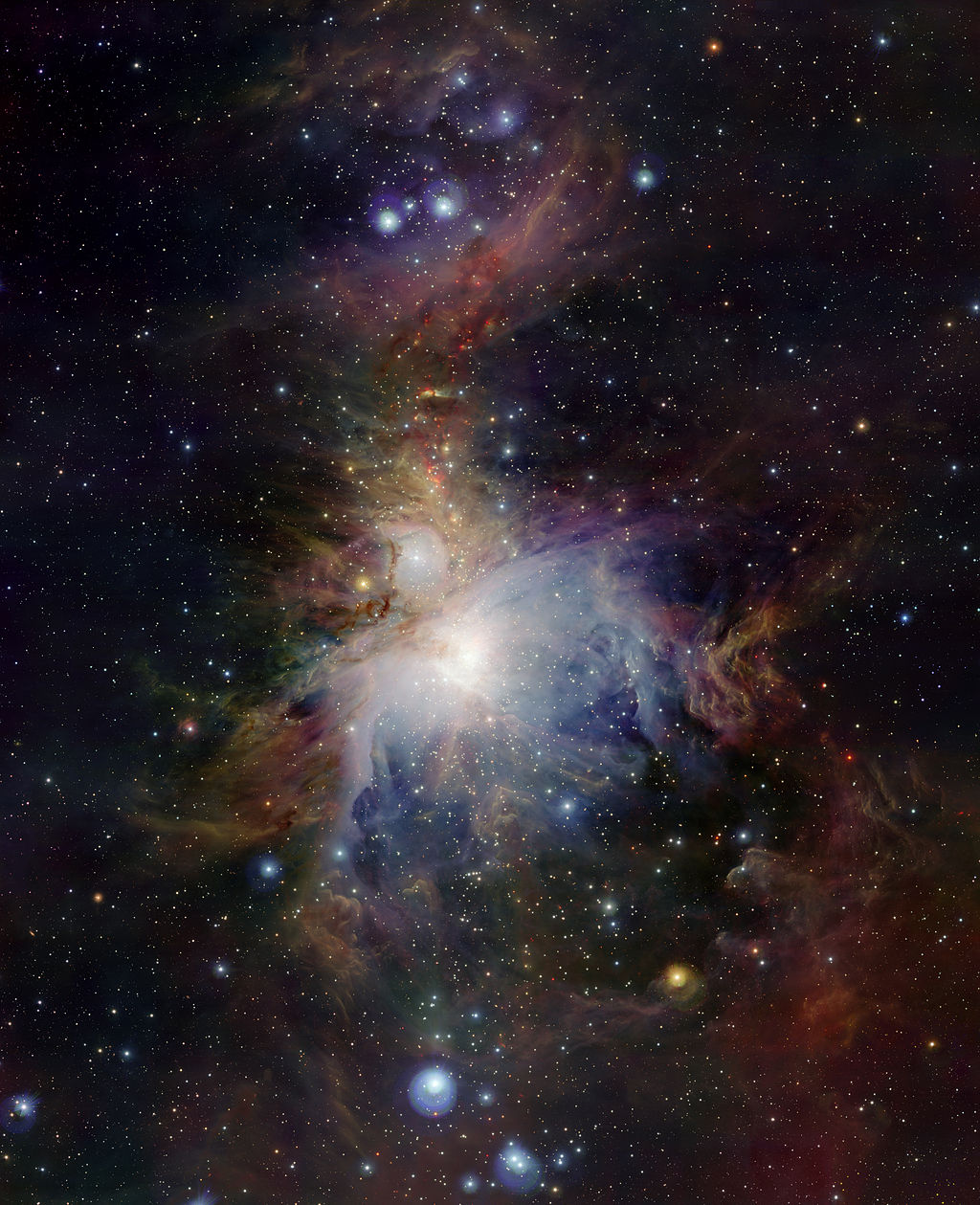
By ESO/J. Emerson/VISTA [CC-BY-4.0], via Wikimedia Commons
M78 (reflection nebula):
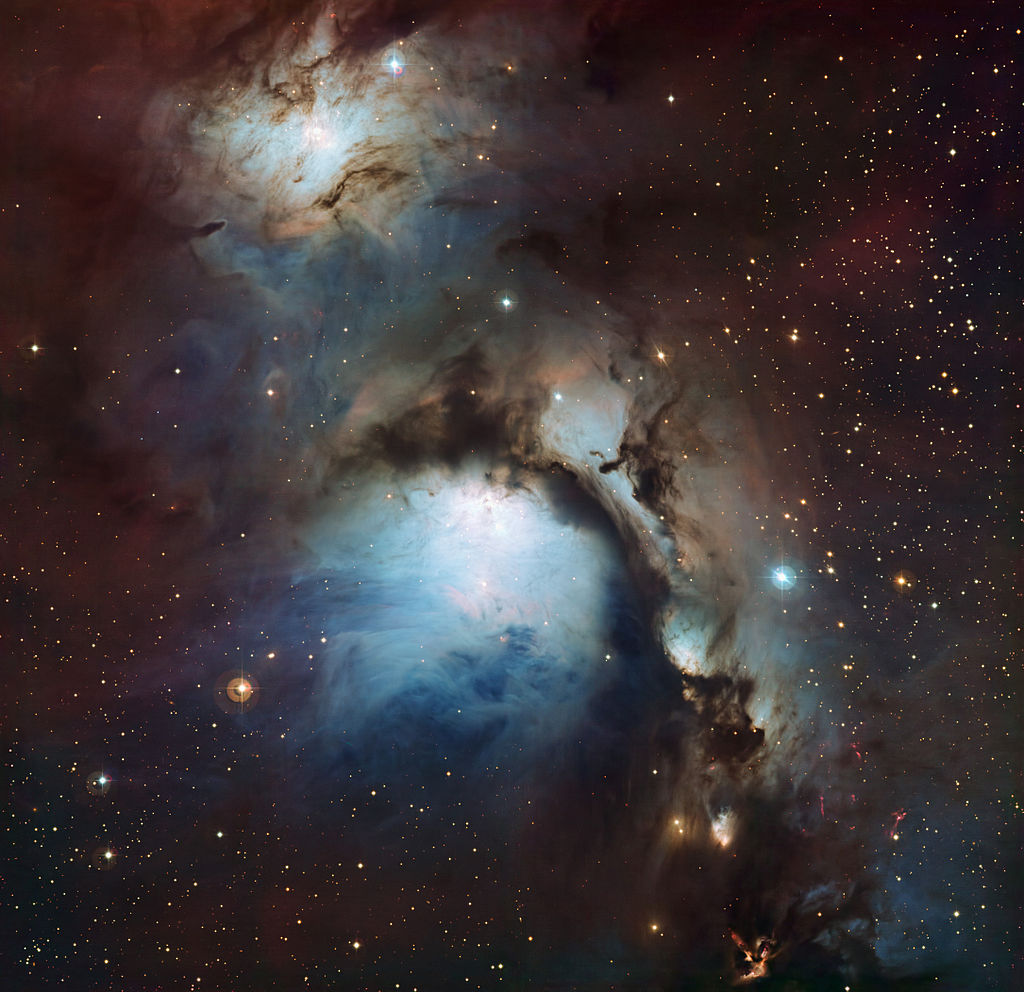
By ESO/Igor Chekalin [CC-BY-4.0], via Wikimedia Commons
LL Orionis (star in the Orion Nebula):
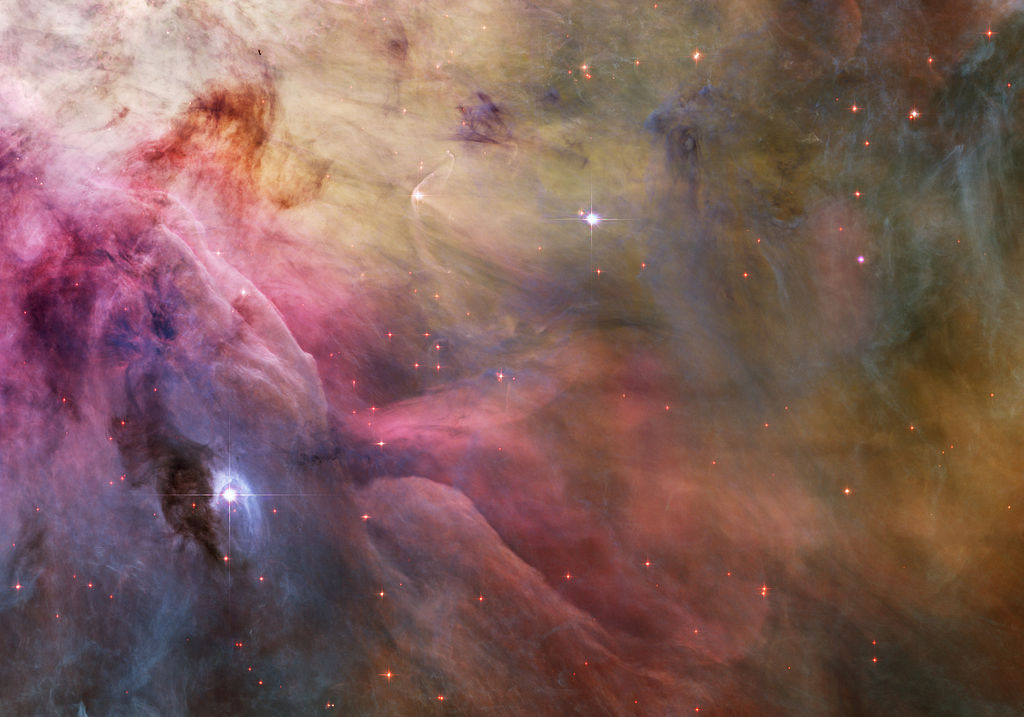
By NASA, ESA, and the Hubble Heritage Team [Public domain], via Wikimedia Commons